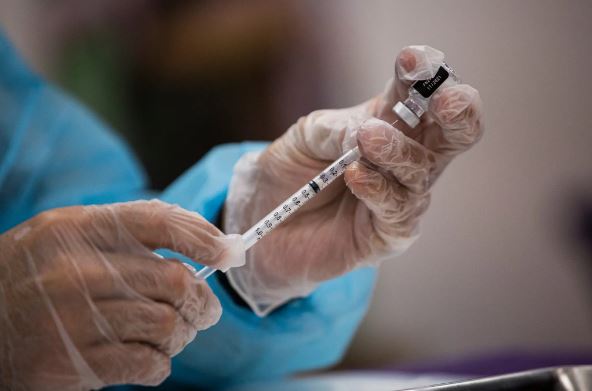A comprehensive new study provides some of the most robust evidence to date that vaccines significantly reduce the risk of developing long Covid. Researchers analyzed data from people in the United States who were infected during the first two years of the pandemic and discovered that vaccinated individuals were much less likely to develop long Covid compared to their unvaccinated counterparts.
Medical experts have long suggested that vaccines can lower the risk of long Covid primarily because they prevent severe illness during the acute phase of infection. Severe infections are more likely to lead to long-term symptoms. However, this study, published in The New England Journal of Medicine, indicates that even people with mild infections can develop long Covid, although vaccination still provides substantial protection.
The study reviewed medical records from millions of patients within the Department of Veterans Affairs (VA) health system. It included nearly 450,000 people who had Covid-19 between March 1, 2020, and January 31, 2022, and about 4.7 million individuals who were not infected during that period. The study’s population was less diverse than the general U.S. population, with nearly three-fourths of participants being white, about 91 percent male, and an average age of 64.
Researchers estimated the percentage of Covid patients who had long Covid one year post-infection by analyzing their health records. The lowest rate of long Covid, 3.5 percent, was observed among vaccinated people infected between mid-December 2021 and January 2022. This contrasts with a 7.8 percent rate among unvaccinated patients infected during the same period.
Dr. Al-Aly, also a clinical epidemiologist at Washington University in St. Louis, highlighted that “vaccine effectiveness wanes considerably with time, and people are not keeping up with yearly vaccine shots.” He cautioned against complacency, noting that neglecting vaccination could lead to a resurgence in long Covid cases.
To ensure their findings were robust, researchers accounted for other potential causes of long Covid-like symptoms. For instance, conditions such as fatigue and brain fog can also affect patients with other illnesses like cancer. The researchers subtracted the rate of these symptoms in the uninfected population from the rate in infected individuals to determine the percentage attributable to long Covid.
The study covered the period from the initial emergence of the coronavirus through the Delta and Omicron variant waves, which saw increased transmissibility. Researchers compared results among vaccinated and unvaccinated patients, finding significant differences.
Among unvaccinated people infected between June 19 and December 18, 2021, during the Delta variant’s dominance, the long Covid rate one year later decreased slightly from 10.4 percent to 9.5 percent. The rate dropped further to 7.8 percent among unvaccinated people infected between December 19, 2021, and January 31, 2022, during the Omicron wave.
Vaccinated individuals saw markedly lower rates of long Covid. Differences in variants and other aspects of the Delta and Omicron periods influenced these results, but the authors attributed about 72 percent of the decrease to vaccination. About 5.3 percent of vaccinated individuals infected during the Delta period experienced long Covid a year later, dropping to 3.5 percent for those infected during the Omicron period.
The study did not cover later periods, but a recent survey by the Centers for Disease Control and Prevention (CDC) reported that about 5.3 percent of U.S. adults, or approximately 13.7 million people, currently have long Covid.

